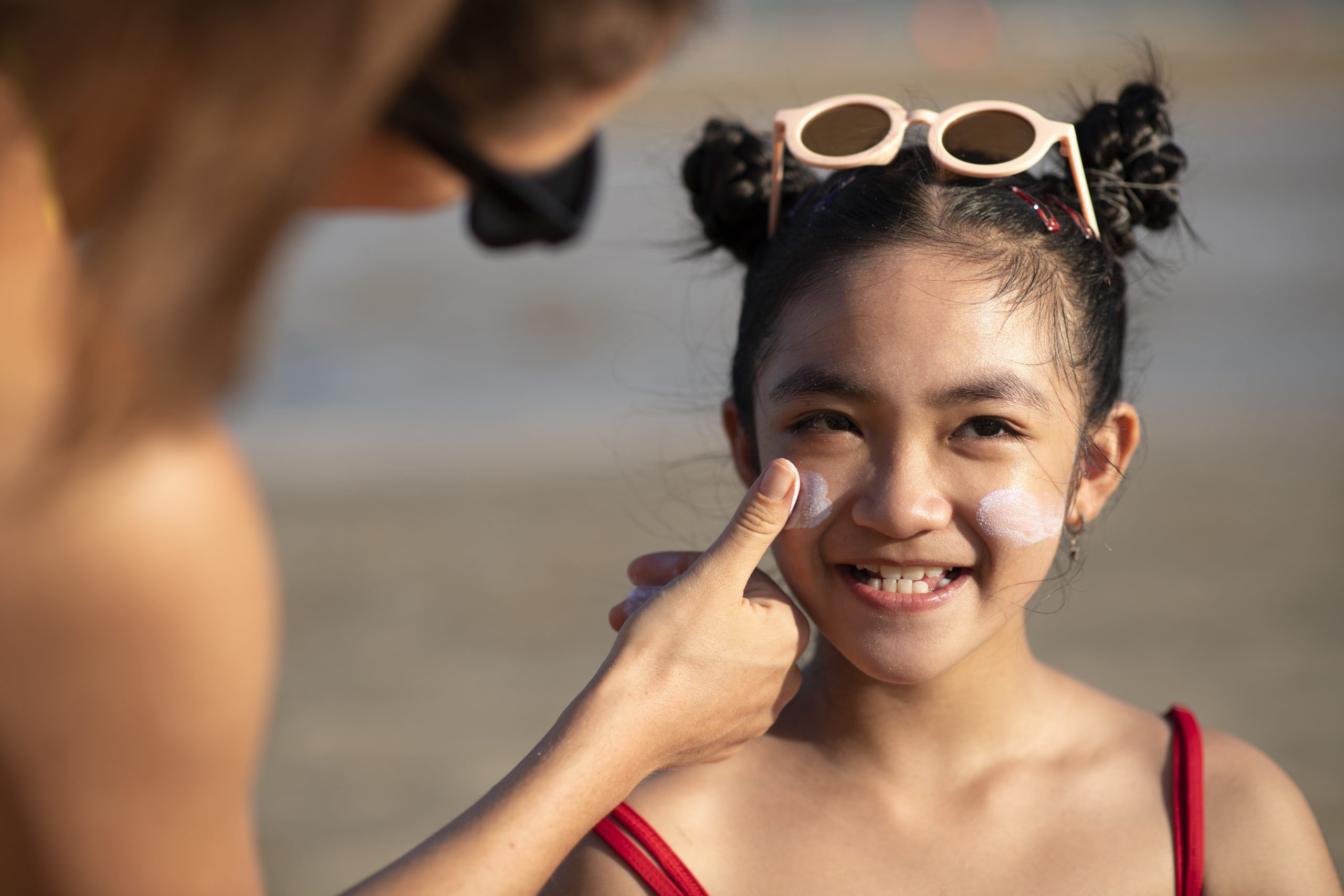
Medically Reviewed by Dr. Lee Hwee Chyen
MBBS MRCP (UK) FAMS (Dermatology)

Singapore has a vibrant climate marked by a mix of abundant sunshine and rain showers all year round. The dynamic weather and ever-changing climate also makes looking after our skin an exciting, year-round adventure.
As we gear up for even hotter summer months ahead, it’s time to dive into the heart of some common heat-related skin concerns and master the art of combating them with finesse.
We experience consistently high temperatures and sunshine almost daily, which can cause sunburn and long-term UV damage. There are two main types of UV radiation that affect the skin: UVA and UVB.
Preventing sun damage begins with practising sun safety. Always apply a broad-spectrum sunscreen with SPF 30 or higher before heading out, even on cloudy days. This should be reapplied every two hours, especially if swimming or sweating. Wearing protective clothing, such as hats and sunglasses, also helps defend against UV damage. Regardless, it is important to seek shade and avoid direct sunlight particularly from 10am to 3pm, when the sun is very harsh.
The heat can lead to dehydration of the skin, resulting in dryness and lack of moisture. Over time, this can exacerbate wrinkles and fine lines while potentially impairing the skin’s barrier function, making it more susceptible to irritants and infections.
In addition to drinking plenty of water throughout the day, there are products that can be helpful in keeping your skin hydrated throughout the day. While product recommendations are highly dependent on each individual’s skin type, as a general guideline, opt for a lightweight, oil-free moisturiser, which can effectively nourishes the skin without leaving a greasy residue, ensuring lasting hydration without discomfort
Additionally, products containing hyaluronic acid or glycerin are beneficial for attracting and retaining moisture in the skin. For instant hydration and relief, I find that using a hydrating facial mist is especially effective, especially on humid days, for that spritz of instant refreshment.
During hot weather, humidity and excessive sweating are common issues that can exacerbate skin problems such as acne and breakouts. High humidity levels stimulate the sebaceous glands to produce more oil, resulting in oily skin. This excess oil, combined with dead skin cells and environmental pollutants, can clog pores and create a breeding ground for bacteria. Additionally, sweat can mix with oil, dirt, and bacteria on the skin’s surface, further increasing the likelihood of breakouts.
To mitigate pore-clogging and minimise acne, cleansing your face twice daily with a gentle, non-comedogenic cleanser helps to remove dirt and oil. Additionally, opting for lightweight, oil-free formulas will go a long way in minimising pore clogging. You can also look for exfoliating products containing ingredients like benzoyl peroxide, salicylic acid, or retinoids, which helps to unclog pores and prevent acne.
Heat rash, also known as prickly heat or miliaria, is a common skin condition during hot weather, characterised by red, itchy bumps. It occurs when sweat ducts become blocked and sweat gets trapped under the skin, leading to inflammation and discomfort.
To avoid getting heat rash, opt for weather-appropriate clothing and stay cool. Using soothing skincare products such as hydrocortisone creams and anti-inflammatory lotions can also help alleviate discomfort and promote healing of heat rash. However, it is essential to seek medical advice if the rash persists for several days despite home treatment, becomes infected, or is accompanied by fever.
Overexposure to the sun can lead to hyperpigmentation and sun spots, which can present as freckles, dark patches, and uneven skin tone. These occur due to an overproduction of melanin, the pigment responsible for skin colour, in response to UV radiation.
To fade existing pigmentation and prevent further damage, it is essential to incorporate targeted skincare ingredients into your routine. Products containing vitamin C, niacinamide, and alpha hydroxy acids (AHAs) are especially effective in fading hyperpigmentation and promoting a more even skin tone
As always, practising sun safety by wearing protective clothing and seeking shade during peak sun hours, as well as using broad spectrum sunscreens, are key to minimising the risk of hyperpigmentation.
And regardless of your skin concern, it’s always advisable to consult a dermatologist if over-the-counter products do not bring improvement.
In conclusion, tackling heat-related skin woes in Singapore’s tropical climate requires a proactive and consistent skincare routine tailored to your lifestyle. By adapting skincare practices to meet these challenges, you can ensure your skin remains vibrant and resilient, allowing you to enjoy all your favourite activities without compromising on skin health.